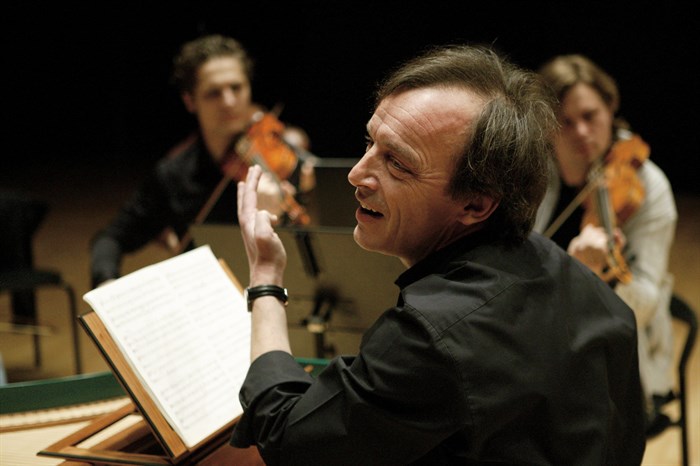léonie sonning music prize 1966
The Swedish soprano Birgit Nilsson received the Léonie Sonning Music Prize of 50,000 Danish kroner at the official opening of the Danish Ballet and Music Festival on 15 May 1966 at Copenhagen Town Hall. Two days later, Nilsson sang the role of Leonore in the Royal Danish Opera’s production of Beethoven’s opera Fidelio.
The programme
Giuseppe Verdi Overture to Nabucco
Giacomo Puccini Tosca’s prayer
Giuseppe Verdi from The Force of Destiny: Leonora’s prayer: Pace, pace mio dio
Carl Nielsen Masquerade overture
Birgit Nilsson, soprano
The Royal Danish Orchestra
Conductor: Johan Hye-Knudsen
citation
The prize was presented at Copenhagen Town Hall on 15 May 1966 by the director of the Royal Danish Academy of Music, Knudåge Riisager. In his speech he said, among other things, that it was a joy to give the award to a Scandinavian artist, while emphasizing that Nilsson, with her beautiful voice, had added another link to the string of pearls from which hang the greatest female singers in history. He then quoted Johanne Louise Heiberg’s words about Jenny Lind, transferring them to Nilsson: ‘The soul shone to such an extent that one could only sit back and enjoy the enchanting sound and soulful acting to the fullest.’ Speeches were also give by the chairman of Copenhagen’s Board of Citizens, Henry Stjernqvist, the Royal Theatre’s Head of Opera John Winther and by the chairman of the Danish Ballet and Music Festival, Professor W E von Eyben.
The written citation for the award has unfortunately not been preserved.
In her speech of thanks, Birgit Nilsson made the following remarks:
‘It is difficult for someone who is used to expressing feelings in music to find the words of thanks for the honour that such an award represents for me. I am especially happy for such recognition from “home ground”. We all know the proverb about the Prophet and his homeland. By “home ground” of course I mean Copenhagen, because here I feel at home. Copenhagen was the first big city in my life. We came here when my mother and father “made it big”, with visits to Tivoli and on annual Christmas trips during which I discovered the secret about Santa Claus. It was in Copenhagen that I later got married. It is a special joy at being placed on a par with artists such as Stravinsky and Bernstein by Mrs Sonning’s prize.’
Birgit Nilsson and Denmark
In connection with the prize concert, Birgit Nilsson sang the role of Leonore in Beethoven’s opera Fidelio at the Royal Danish Opera on 17 May 1966, conducted by John Frandsen. The performance also featured among others Willy Hartmann in the role of Florestan and Franz Andersson as Pizarro. Nilsson donated her fee from the performance to fund scholarships for young Danish singers.
Nilsson lived in Skåne, the part of Southern Sweden that lies close to Denmark, and therefore had easy access to the country despite her busy world career. For many years she was a frequent guest of the Copenhagen music scene, especially of the Tivoli Concert Hall. Her first concert at Tivoli was in 1948, when she sang arias by Mozart, Weber, Wagner and Verdi – just two years after her debut in Stockholm. ‘Swedish singing at its best’ wrote the critic Walter Zacharias in the newspaper Land og Folk in an enthusiastic review of the young, unknown singer, while the Social-Demokraten’s reviewer Frede Schandorf Petersen called her ‘a soprano of great presence with superior technical skill.’
Over the years, it became almost a tradition that Nilsson would sing a concert at the Tivoli Concert Hall every summer. In 1979, Tivoli produced a silver medal bearing Nilsson’s portrait. In 1973, Nilsson received the Danish Royal House’s rare medal of merit for artists and sciences, Ingenio et arti.
The daily press wrote, among other things:
Fidelio is Beethoven’s hymn to the infinite power of marital love, and that was exactly what Birgit Nilsson managed to express in a gripping but at the same time artistically extremely disciplined performance. Vocally alone, one delighted at how, like a chamber musician, she added to the many ensembles without obscuring others with her vocal splendour. […]. She looked magnificent and carried herself brilliantly on stage, just like the “woman who pretends to be a man,” but whose true femininity still shone through in all the psychologically right places. The flowers she received were therefore fully justified, as was the audience clapping and stamping in time.
(Hans Vogt, Aktuelt, 18 May 1966)
How honest and genuine she is, the great Birgit Nilsson. Fidelio’s suit clothed her strong, heavy figure while in her broadly-born voice she evoked the image of a perfectly purposeful woman with all her mind set on one thing. Her expression of the driven heroic female figure was untouchably secure and complete. […] The evening will be remembered. Nilsson’s singing and acting are superb and her stepping into the Danish ensemble added much excitement to the house.
(Robert Naur, Politiken, 18 May 1966)





